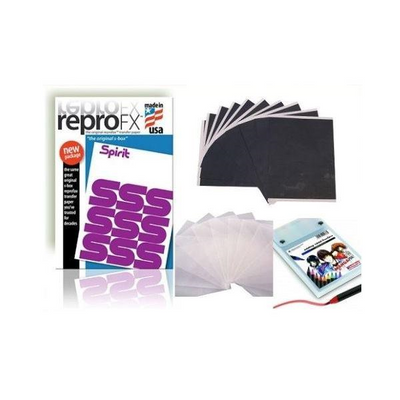Starting your own tattoo studio is exciting, but figuring out what supplies you need can be overwhelming. As a beginner, it's tough to sift through the endless options and know what's essential. From choosing reliable tattoo machines to the right kinds of inks and needles, it's easy to feel lost.
This guide is here to help simplify things, ensuring you start your tattooing journey confidently and fully equipped with everything you need to succeed.
1. Tattoo machines

Tattoo machines are the cornerstone of tattooing equipment. Beginners should familiarise themselves with the different types available:
- Coil machines: Traditional tattoo machines known for versatility, widely used for lining and shading. Operates with an electromagnetic circuit for precision and customisation.
- Rotary machines: Uses a motor to move the needle, quiet, smooth lines, easier on skin—ideal for beginners.
- Pen-style machines: Resembles a large pen, providing control similar to writing, easing the transition from drawing to tattooing.
- Type of tattoo work: Different styles require different machines; detailed work may benefit from a coil machine.
- Comfort: Consider weight and grip comfort for long sessions.
- Budget: Balance cost and quality when choosing a high-quality machine.
2. Power supplies and accessories
Proper power setup is crucial for the effective operation of tattoo machines:
- Power units: Regulate electricity to the machine, allowing smooth operation and speed/power adjustments.
- Clip cords and foot switches: Connect the machine and allow hands-free operation for hygiene and focus.
- Voltage requirements and settings: Different techniques require different voltages (linework vs. shading).
3. Tattoo cartridges and needles

Choosing the right needles is crucial for tattoo quality and comfort:
Types of needles:
- Liners: For outlines; tight rounds for fine lines, looser rounds for thicker lines.
- Shaders: For shading and colour fill; flat or round configuration.
- Magnums: For large areas; weaved or stacked.
- Needle configurations and sizes: Arrangement and thickness affect design detail.
- Disposable cartridges vs. traditional needles: Cartridges offer hygiene and convenience; traditional needles are customisable and often cheaper.
4. Inks and ink accessories

Tattoo ink is a fundamental component, varying in quality, colour, and composition:
Types of inks:
- Black inks: Primarily for outlines and shading; quality varies.
- Colour inks: Vibrant, long-lasting, and safe.
- Shading inks: Smooth gradients in grey or colour.
- Brands suitable for beginners: Reputable, consistent, and safe.
- Ink cups and holders: Hold ink steady to prevent spills.
- Considerations for ink safety and quality: Sterilised, regulatory-compliant inks only.
5. Tattoo furniture
Comfortable and functional furniture is essential for both artist and client:
- Artist chairs and client chairs: Ergonomic, adjustable, prevent fatigue.
- Workstations and portable tables: Ample space, easy to clean.
- Lighting equipment: Adjustable, high-quality lighting for precision work.
6. Sterilisation and hygiene supplies
Maintaining a sterile environment is mandatory:
- Autoclave and ultrasonic cleaners: Sterilise and clean equipment.
- Disinfectants and cleaners: Clean work areas and tools.
- Protective gloves, aprons, and masks: Prevent cross-contamination.
- Barrier films and surface covers: Protect surfaces and equipment.
7. Skin preparation and aftercare products
Proper preparation and aftercare are vital:
- Stencilling products: Transfer paper and solutions for design placement.
- Skin cleansers and antiseptics: Prepare skin, reduce infection risk.
- Aftercare ointments and lotions: Support healing and tattoo quality.
8. Practice materials
Practice is crucial for beginners before working on real skin:
- Practice skins: Synthetic or organic materials mimicking human skin.
- Beginner tattoo kits: Include basic machine, needles, inks, and practice skins.
- Books and online resources: Tutorials, step-by-step guides, and communities for feedback.
9. Administrative supplies
Managing administrative tasks is key to running a professional studio:
- Consent and release forms: Legal protection and client understanding.
- Scheduling and appointment software: Efficient bookings and reminders.
- Payment processing tools: Multiple payment options integrated with accounting.
Where to buy the best tattoo studio supplies online
For a comprehensive selection of high-quality tattoo studio supplies, our website is an excellent destination. We offer tattoo machines, inks, needles, cartridges, kits, hygiene, and sterilisation products—all in one place. Exceptional service, competitive pricing, and fast shipping make it easy for beginners and pros alike.




























































 Studio supplies
Studio supplies












 Power & batteries
Power & batteries







 Aftercare
Aftercare



















 Apprentice
Apprentice


 Piercing & jewellery
Piercing & jewellery







 PMU supplies
PMU supplies



 New arrivals
New arrivals
 Gift vouchers
Gift vouchers
 Shop all
Shop all










































